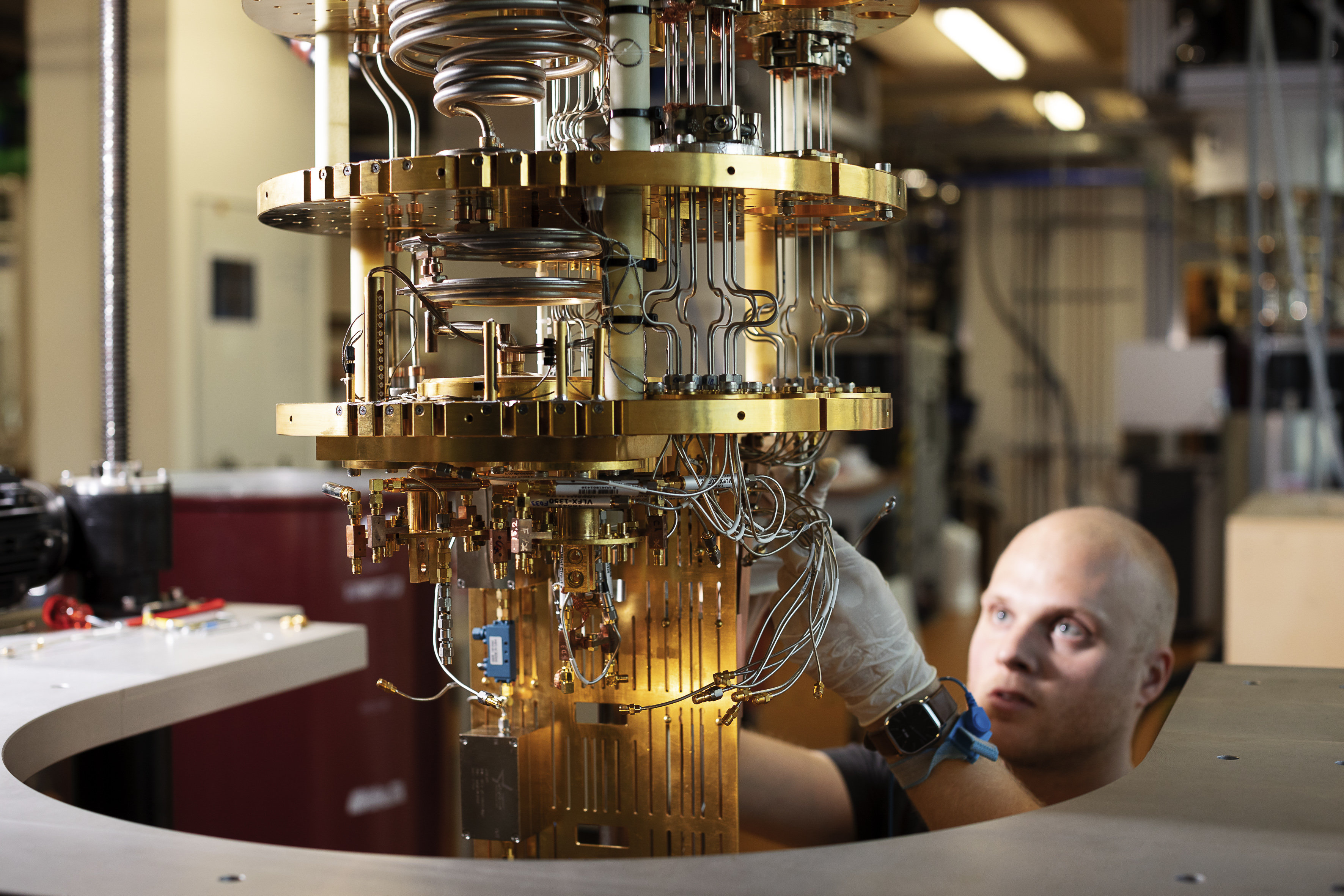Quantum Science and Quantum Information
TN-MI-219
The quantum world is full of magic: particles can be in two different states at the same time, they influence each other instantaneously even when they are light years apart. The fascination for quantum physics lies in its magic and in its potential. Quantum mechanics imposes fundamental limits on the precision with which we can measure values of physical quantities.
A world which is so vastly different from the one we experience in our daily lives offers functionalities which go far beyond those offered by classical physics. One such functionality is fully safe communication, another is the quantum computer. The limitations manifest themselves in detectors: here a challenge is to reach the uncertainty limit imposed by quantum mechanics.
This minor introduces you to the quantum world and unveils its spectacular potential and its fascinating limitations. Instead of relying on daily life experience, you sometimes dive into a mathematical description which leads to outcomes via reasoning that even experts find hard to understand.
I think I can safely say that nobody understands quantum mechanics.
R. P. Feynman, Nobel Laureate of Physics
There is a vibrant community of scientists and engineers at TU Delft working on quantum technologies, who will help you to unravel the magical world of quantum physics.
Auxiliary fields such as mathematics, computer science and electrical engineering are covered, always with an eye to their application within quantum science and information. In a group project at the end of the minor you will work on applications in quantum technology, concerning software or hardware.

Faculty of Applied Sciences
ECTS: 30
Language: English
Maximum participants: 60
| Non-selection minor: | |
| Selection minor: | |
| Criteria: we strongly advise against taking it if your average mark for the calculus and algebra courses in your programme is not well above 7. | |
Education methods
An integrated set of course modules combined with a final projectFor whom?
Participation in the QSQI minor is open to students from BSc programmes (Applied) Physics, Electrical Engineering, (Applied) Mathematics, Computer Science, and Electrical Engineering at Delft University of Technology and other universities. The minor is open for Astronomy students as well.
If you are enrolled in a different bachelor programme than the ones mentioned above, and finished a 5 EC course in Quantum Mechanics before the start of the minor, please send an e-mail to Minor-QSQI-TNW@tudelft.nl to check your eligibility.
What will you learn
The laws of quantum mechanics, which describe the behaviour of nature at the atomic scale,
include fascinating concepts such as superposition and entanglement that we are not familiar with in our macroscopic world. In the last two decades, through ground-breaking research and engineering, it has become possible to employ these laws to manipulate and control particles at the quantum level in such a way that they can be used for developing entirely new applications: quantum technologies.
The goal of this minor is to make you familiar with developments in the field of quantum science, quantum technology and with practical applications arising from research in this multidisciplinary field, such as quantum computers and quantum networks.
The minor programme begins with covering the fundamental knowledge you will need from mathematics, quantum mechanics and computer science. After this, you dive into learning about modern quantum technologies, in particular hardware platforms for realizing qubits, quantum communication protocols, and quantum sensing and measurements. In a team project at the end of the minor you will work on applications in quantum technology, involving hardware or software.
-
The minor consists of an integrated set of course modules combined with a final project, in which students work in small groups on the design, hardware and/or software components of a quantum device to apply their newly attained skills.
- The number of contact hours is 16-20 hours a week.
- Fulltime availability is required for the group project in January.
- Timetabling of the course modules is based on four periods in the semester.
Course overview
-
TN3105 Mathematics for Quantum Physics 2 ECTS all students TN3126 Information and Computation 5 ECTS AS students TN3136 Quantum Physics 5 ECTS EEMCS students TN3145 Quantum Communication and Computation 4 ECTS all students TN3156 Quantum Sensing and Measurement 4 ECTS all students TN3166 Solid-State Quantum Bits (consisting of Semiconductor
Quantum Bits, and Superconductor Quantum Bits)9 ECTS all students TN3175 Quantum Engineering Group Project 6 ECTS all students See the study guide for additional information.
Register for this minor
- TU Delft students (CS, EE, TN, TW): via tudelft.nl/minors and Registration procedure/deadlines for TU Delft students.
- Molecular Science & Technology (major Materials) students using the form ‘Request for approval of self-composed minor’. Contact Arno Haket, Minor-QSQI-TNW@tudelft.nl.
- Students from other Dutch universities should register at TU Delft via Studielink (an additional registration alongside your own study programme). Choose study programme ‘Minor at Applied Physics’ / ‘Minor bij opleiding Technische Natuurkunde’. Read more via Registration procedure and deadlines for LEI and EUR students.
This will create a TU Delft login account which you can use to sign up for the minor QSQI. - Students from foreign universities should register as an exchange student.
Contact
If you have any questions about the programme, please do not hesitate to contact the minor coordinator.
- Minor Coordinator: Eva de Haan, Minor-QSQI-TNW@tudelft.nl
- Programme Director: Miriam Blaauboer, Minor-QSQI-TNW@tudelft.nl
- QuTech Academy: Menno Veldhorst, Minor-QSQI-TNW@tudelft.nl
- International exchange students: please contact the international office of the faculty of Applied Sciences for additional information: InternationalOffice-TNW@tudelft.nl